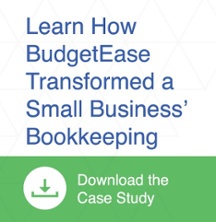What small businesses can do now to make year-end less stressful
Your mail volume has been increasing by the day. Your emails seem to be multiplying geometrically! Oh yes, these companies and organizations are gearing up for the end of the year. Retail stores are heading into the holidays so they want you to come in and buy. Charitable organizations want your tax deductible contribution. Most established companies have a year-end advertising campaign to increase sales or contributions.
What can your small business do to prepare for year-end?
1. Reconcile all accounts (including loans, credit cards, and yes, petty cash)
- Review and clean-up unreconciled transactions (You don’t want to carry over unreconciled items to the next year. They are much harder to clean up)
- Verify credit card and loan balances
2. Review the Chart of Accounts
- Merge duplicates and delete or make unused accounts inactive
- Move accounts that are in the wrong place
3. Clean-up accounts receivable and accounts payable
- Run an Open Invoice and Unpaid bills report and clean up incorrect
- Clear up unapplied credits
- Remove (delete or make inactive) any unused or closed accounts
- Clear up undeposited funds (if you have Undeposited funds contact us for an easy way to get rid of them)
4. Check the 1099 vendors and obtain all necessary information
- Verify with your accountant/payroll provider that they are preparing 1099s for you
- Get in the habit of requesting a W-9 prior to payment. Create a procedure for your business and have it as part of your business policies
5. Update your budget
- Review your year-end results so you can have a great base for next year
- Create your budget for next year
6. If you haven’t listed out your business goals, get in the habit of doing so.
- Review them at the end of each year
- Update them and share with your employees
7. Back-up your files
8. Update and change passwords
9. Take inventory
10. Verify your fixed assets
- Update the fixed asset file to include receipts of current year purchase
- Manuals
- Warranties
- Have a check sheet with all the above
11. Record the mileage on your cars
- Keep a file of your car maintenance
- Keep a file of loan/lease papers
12. Prepare & organize your files to make room for the new year
Review adjusting entries:
- Depreciation
- Supplies on hand
- Interest payable
- Interest receivable
- Salaries and Wages payable
- Pre-paid insurance
13. Obtain a list of needed items from your tax preparer
Let us know how you did on our checklist and if it seems overwhelming, contact us for help. We are happy to offer a one-hour free consultation.

Image credit: New Years Eve Shows Thirty One And Appointment Stock Image by Stuart Miles via freedigitalphotos.net
Mary has a degree in industrial management from Purdue, with a double major in Computer Science and Accounting. After earning her CPA, she became an auditor for Deloitte-Touche before moving on to be senior accountant for WGN Radio in Chicago. After getting married, she moved to Cleveland and started working as a tax accountant for her family’s real estate business.
Mary is driven by the sense of accomplishment when she helps others achieve their goals. Mary teaches accounting to college students. She has experience working with law firms and real estate businesses on their financial records. She is excited to work with new clients, learn about their industries, and solve their problems.





